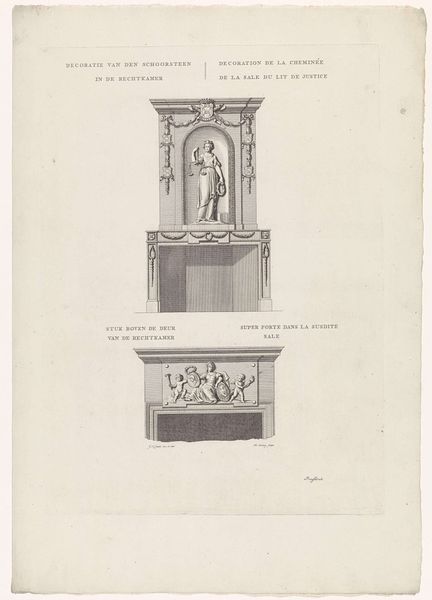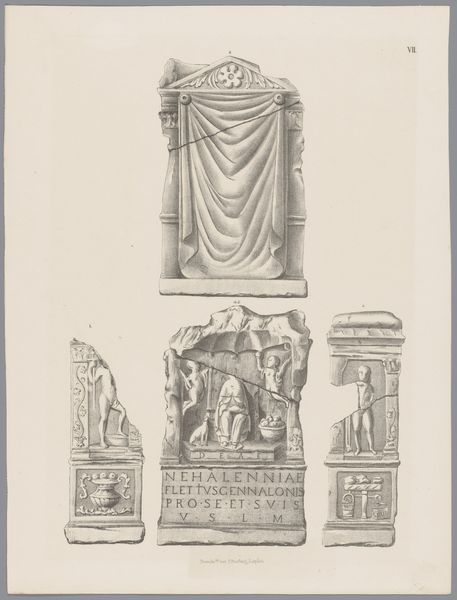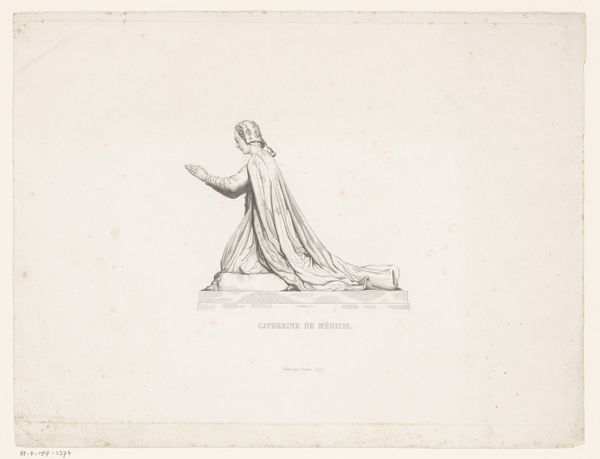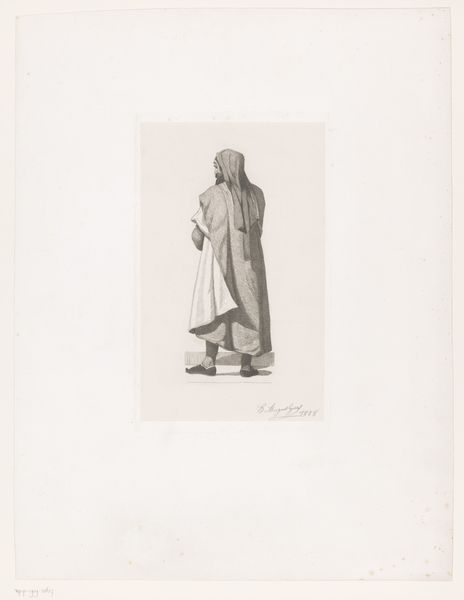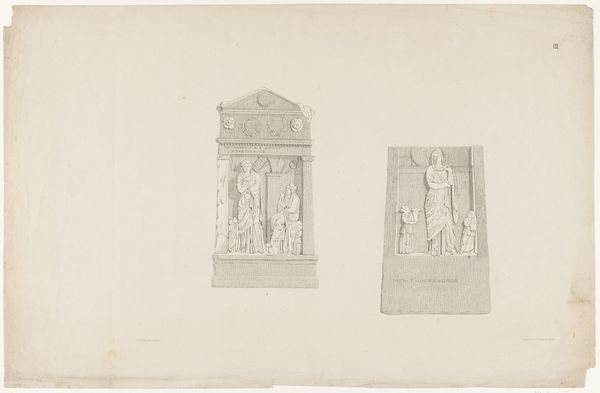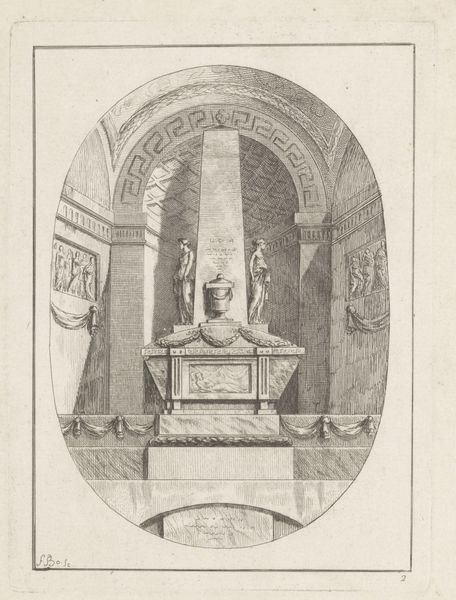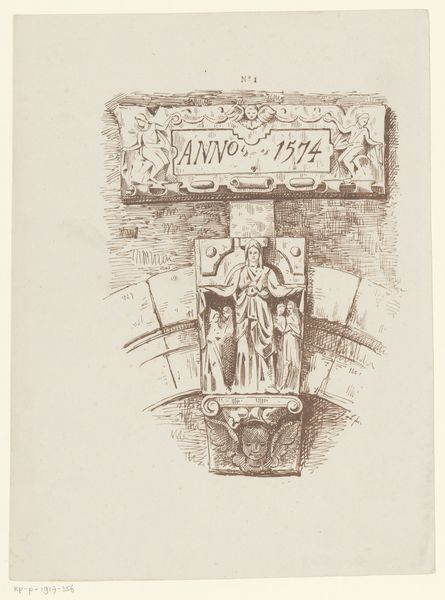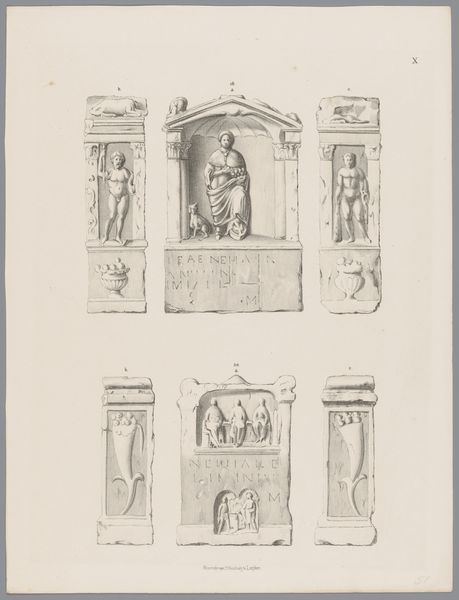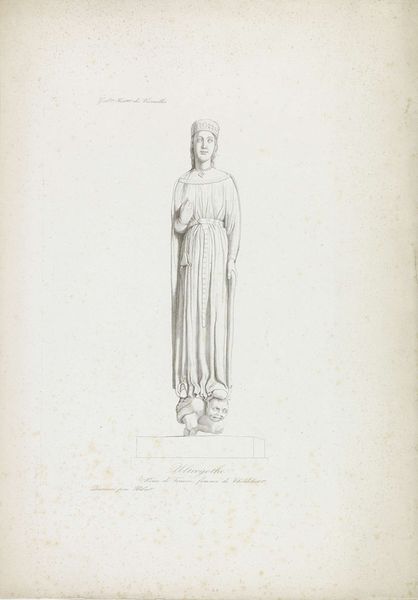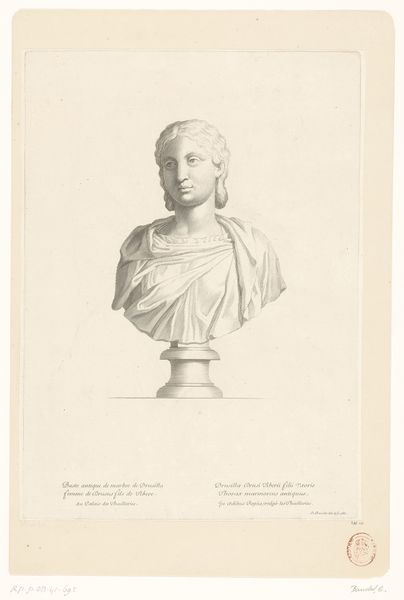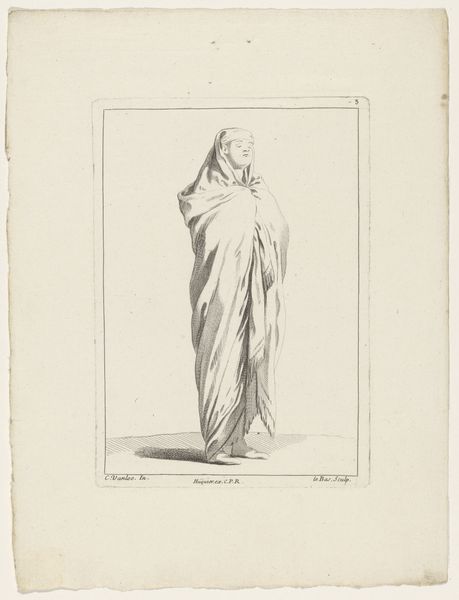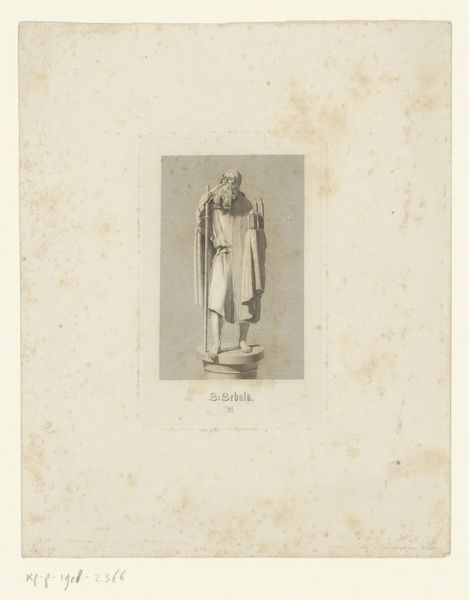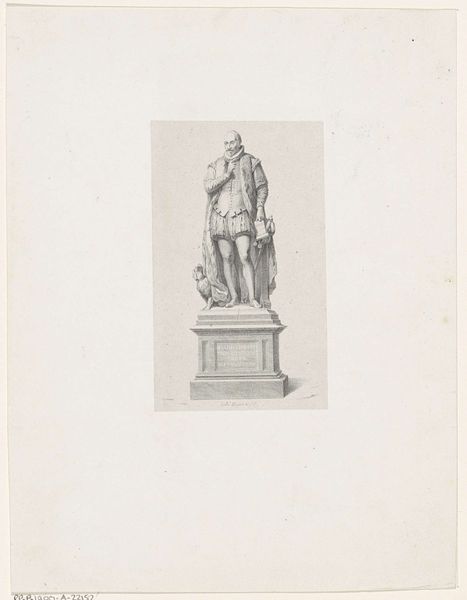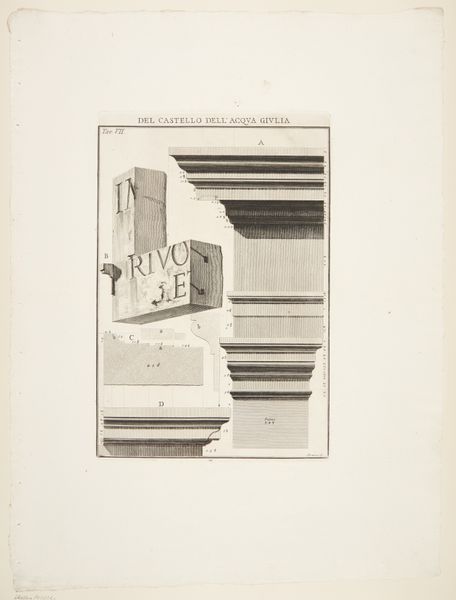
Archeologische fragmenten, onder andere van een beeld met Demeter 1836 - 1870
0:00
0:00
augustinfrancoislemaitre
Rijksmuseum
drawing, print, engraving
#
drawing
# print
#
greek-and-roman-art
#
old engraving style
#
figuration
#
ancient-mediterranean
#
history-painting
#
engraving
Dimensions: height 339 mm, width 245 mm
Copyright: Rijks Museum: Open Domain
Curator: This print, entitled "Archeologische fragmenten, onder andere van een beeld met Demeter," or "Archaeological fragments, including a sculpture of Demeter," dates back to between 1836 and 1870. Editor: It's stark, almost clinically detached, isn't it? Like looking at architectural blueprints. There's a sense of loss, like holding pieces of a shattered world. Curator: Indeed. What we have here are detailed engravings of archaeological fragments. They are a part of broader European fascination with ancient Greece during that period, particularly in documenting and categorizing classical antiquity. Think Elgin Marbles but on paper! Editor: Ah, the relentless urge to categorize and quantify the past. I can't help but wonder about the original context of these fragments. What stories did they once tell? That Demeter fragment—a powerful goddess, reduced to a relic on display. Curator: Exactly. Consider how museums like the Rijksmuseum, where this print resides, served as repositories for such artifacts, often removed from their original locations and cultural contexts. The politics of display is never neutral. Editor: No, never. And this image reflects that tension. It's a study of antiquity but also unintentionally a commentary on the act of studying, of collecting, and displaying a once living, breathing cultural artifact. Curator: Precisely. The act of creating an engraving – multiple prints, circulated for study – further separates us from that original monumentality. Yet, it grants access. It democratizes knowledge, even if that knowledge is filtered through a specific lens. Editor: There's beauty even in that contradiction. This image, almost a ghost of a sculpture of a goddess, carries echoes of power, loss, and the enduring human need to connect with the past, even through fragments. Curator: A perfect reminder that history is not static but a continuous, fragmented, and often conflicted, conversation. Editor: And art invites us to listen in, doesn't it? Even if all we hear are whispers.
Comments
No comments
Be the first to comment and join the conversation on the ultimate creative platform.
